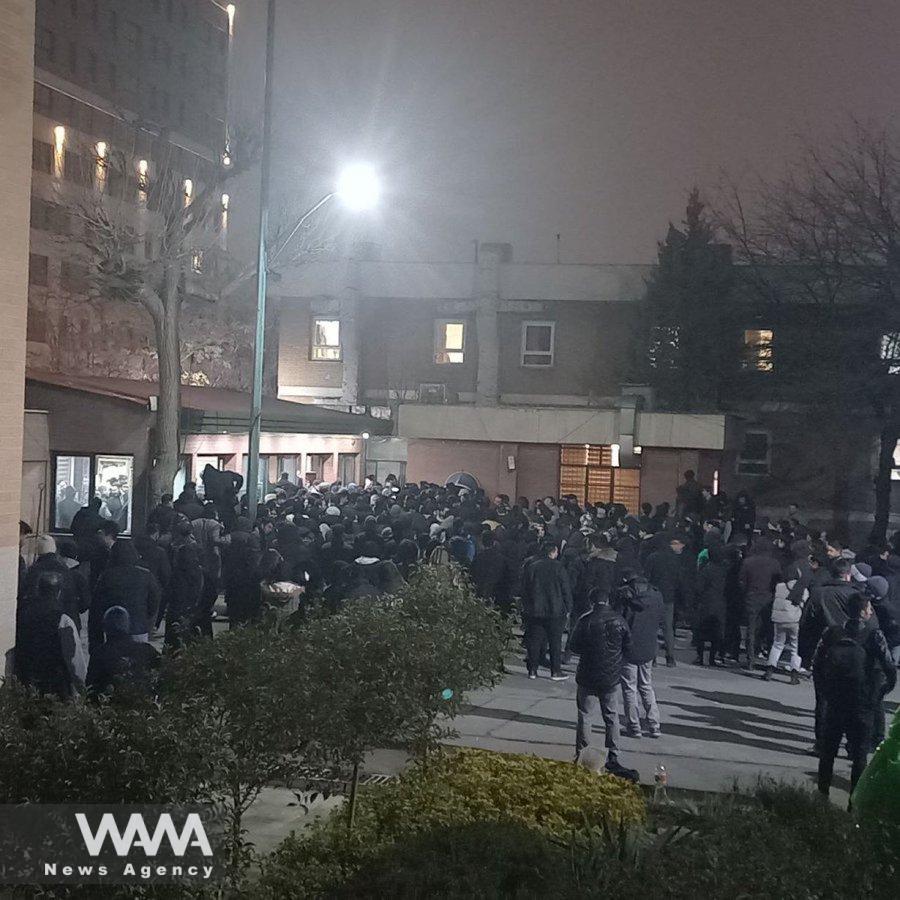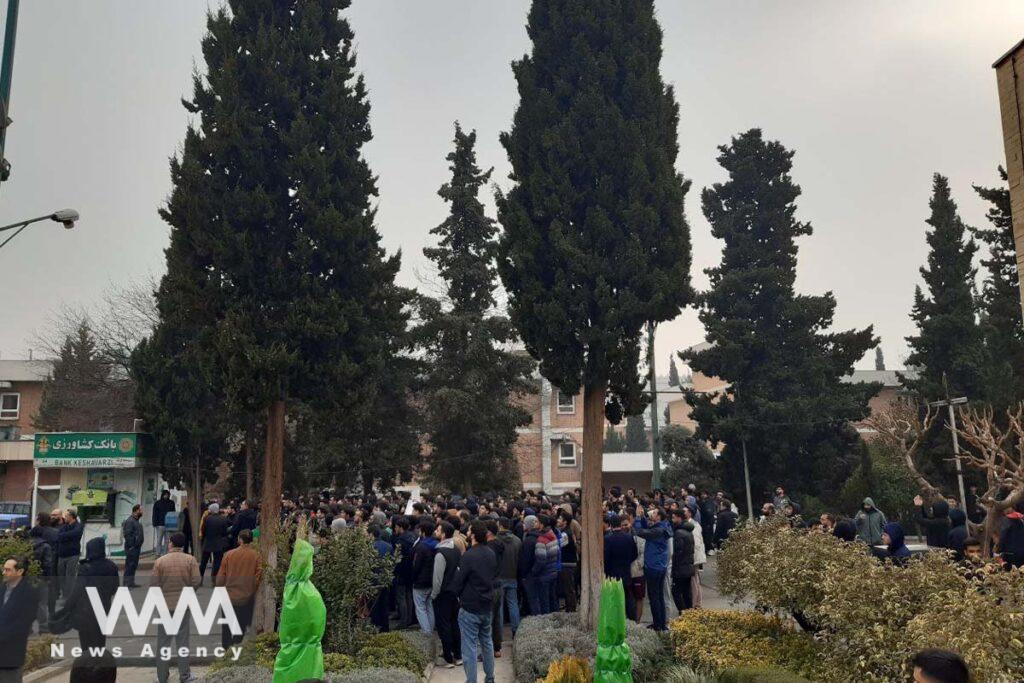Student’s Death: Police Negligence & Opposition Exploitation
WANA (Feb 15) – Tehran’s prosecutor announced today that suspects related to the murder case of a University of Tehran student have been arrested.
A University of Tehran student, Amir Mohammad Khaleghi, was reportedly attacked by two robbers at 8:20 PM on the evening of February 12 on a street leading to the university. He was stabbed and later succumbed to his severe injuries at the hospital.
Further investigations revealed that the victim was returning to his dormitory when the tragic incident occurred just a few steps from the entrance. He was carrying a backpack containing his laptop and mobile phone.
It is suspected that the two motorbike-riding thieves had been tracking him with the intention of stealing his belongings. During the robbery, the assailants engaged in a scuffle with the student, ultimately stabbing him twice before escaping with the backpack.
This incident sparked widespread reactions on social media. Hours later, Iran’s police spokesman, Second Brigadier General Montazer al-Mahdi, reacted by stating that “special teams have been formed to identify and arrest the perpetrators of this crime.”
However, many observers interpreted the statements of the police spokesman and later the reaction of the head of Iran’s police as an attempt to evade responsibility. Many Iranian citizens believe that instead of patrolling the streets, the police often remain in their stations, failing to ensure the safety of people’s lives and property.
Two University of Tehran students confirmed in an interview with WANA News Agency that the streets surrounding the university are highly unsafe, with thefts occurring not just daily but hourly.
Dr. Aref, Iran’s First Vice President, issued a special directive to the Minister of Interior, demanding swift action to identify the perpetrators and provide a transparent report to the public. He personally pledged to follow up on the case.
Iranian President Masoud Pezeshkian also tasked the Minister of Science with investigating the death of the University of Tehran student.
Meanwhile, opposition groups took advantage of the incident, attempting to incite students to take to the streets before the full details of the case were revealed and the culprits were arrested.
Some students gathered in the courtyard of the University of Tehran, protesting what they saw as police negligence, as well as the failure of security forces and university guards to protect students from rampant thefts in the area.

Protest gathering of students following the killing of a University of Tehran student. Social Media / WANA News Agency
The Reformist Party, currently in control of the executive branch, has been reluctant to become overly involved in the issue, wary of creating political and security challenges for the government. Additionally, for several years now, the Reformists have recognized that none of the opposition groups against the Islamic Republic are rational actors who genuinely care about Iran or its people. As a result, they prefer to distance themselves from these groups.
The television network “Iran International,” which receives ideological, financial, and logistical support from Israel’s Mossad and Saudi Arabia, immediately promoted the idea of student-led street protests.
Royalists, who have lived outside Iran for decades and dream of restoring the monarchy, were among the other groups that, over the past two days, have attempted to mobilize students for street demonstrations.
The terrorist group Mujahedin-e Khalq (MEK), which has minimal support among Iranians—even those opposed to the Islamic Republic—once again called for armed and violent actions against the Tehran government.

Protest gathering of students following the killing of a University of Tehran student. Social Media / WANA News Agency
Opposition groups believe they can use this incident, much like the death of Mahsa Amini, to bring people into the streets and force the government into a costly reaction. However, the circumstances of this event are not comparable to Amini’s case, and similar incidents occur in many other countries.
More importantly, the government opponents’ strategy of “fabricating martyrs” has become highly repetitive and distasteful to Iranians. Fewer people are willing to risk their lives following the opposition’s agenda.
Tehran believes that Western and Israeli security services are seeking to create a new wave of protests in Iran under the pretext of the killing of this student. However, all evidence indicates that the people are unwilling to support the protesters, whose numbers do not even reach two hundred, in this matter.
In 2022, all major global media outlets sided with the opponents of the Islamic Republic following the death of Mahsa Amini, hoping to potentially remove the clerics from power. However, this high-stakes media gamble by Western, Hebrew, and Arabic media resulted in failure. Will the Western and Arab media and politicians once again support the opponents of the government in Iran?
Student protests inside the university premises continue, with students demanding answers from the police, university officials, and security forces. They are calling for the harshest legal punishment for the perpetrators.
The body of Amir Mohammad Khaleghi was laid to rest today in his hometown in South Khorasan Province.













